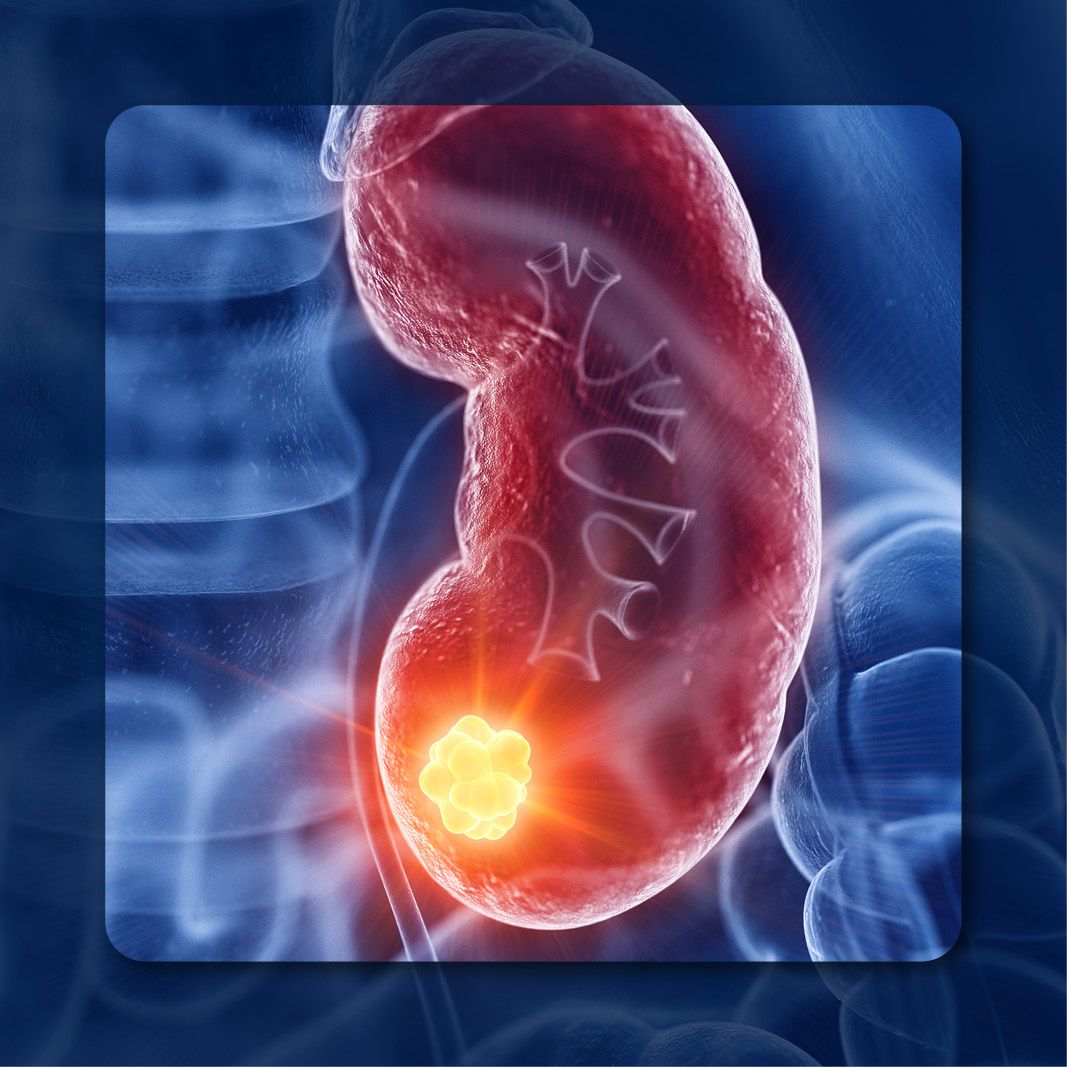Video
Introduction and Review of CheckMate 9ER for Metastatic RCC
Author(s):
Toni Choueiri, MD: Hello, and welcome to this OncLive® Peer Exchange®, “Evolving Practice Patterns for Advanced Clear Cell Renal Cell Carcinoma.” I am Toni Choueiri, from the Dana-Farber Cancer Institute in Boston, Massachusetts. Joining me today in this discussion are my colleagues Dr Bernard Escudier, from the Institut Gustave Roussy in Villejuif, France; Dr Rana McKay, from the University of California San Diego; Dr Nizar Tannir, from The University of Texas MD Anderson Cancer Center in Houston; and Dr Martin Voss from Memorial Sloan Kettering Cancer Center in New York.
Today we are going to discuss how recent clinical trials and new FDA approvals are shaping the way we treat metastatic kidney cancer. We’re going to include key topics discussed during the 2020 ESMO [European Society for Medical Oncology Congress] and the potential impact of new data on clinical practice.
Our first segment involves frontline clinical trials in metastatic clear cell RCC [renal cell carcinoma]. We’ll discuss CheckMate 9ER, which was presented during the plenary session at ESMO. We’ll start with Dr McKay to tell about the rationale to that combination and the trials that led to CheckMate 9ER. Dr McKay?
Rana McKay, MD: Thank you, Dr Choueiri. It was exciting to see the CheckMate 9ER data presented at the ESMO meeting this year. The groundbreaking work that led to this combination entering into the phase 3 setting, and ultimately a positive trial, was the work of Andrea Apolo at the NCI [National Cancer Institute], who designed a phase 1 study looking at the combination of nivolumab with cabozantinib and also with ipilimumab. That work was recently published in the JCO [Journal of Clinical Oncology] before the release of the ESMO data. We know that nivolumab has single-agent activity in RCC as well as cabozantinib. A series of trials have demonstrated that combination I/O [immuno-oncology]–VEGF inhibition has improved outcomes for patients. That provided the rationale, and Andrea’s work actually provided the rationale for the trial going into phase 3.
Toni Choueiri, MD: Can you review with us the trial design? I can speak before asking Dr Escudier later about the safety and efficacy.
Rana McKay, MD: This was a large phase 3 randomized open-label trial. It enrolled about 650 patients. Patients with newly diagnosed or metastatic RCC that’s treatment-naïve with a clear cell component were randomized 1:1 to receive the combination of nivolumab plus cabozantinib vs sunitinib. The starting dose of cabozantinib for this trial was 40 mg once daily as opposed to the single-agent dose, which is at 60 mg. The primary end point was PFS [progression-free survival], and secondary end points were OS [overall survival] response, duration of response, and safety. The trial was dramatically positive for all 3 efficacy end points, including PFS, OS, and objective response. There was nearly 49% reduction in the risk of progression or death, 40% decrease in the risk of death, and improvement in responses that were observed in the trial. Dramatically positive study.
Toni Choueiri, MD: Can you comment on the quality of life?
Rana McKay, MD: The quality-of-life data are quite interesting. They absolutely, truly matter. How patients feel on therapy and how therapy augments their baseline symptoms is critically important. The patients that were enrolled on the trial were heterogeneous. Patients with favorable-risk disease, intermediate-risk disease, and poor-risk disease have a different composition at baseline, and the fact that we did not see a decrement in quality of life with the combination—that’s clinically meaningful with patients. Now that we have several options in the frontline space, these nuances are going to start to come out. How does the patient feel? My patient feels better on this regimen or they’re not feeling terrible on this regimen, and that’s critically important. The quality-of-life data were intriguing. We’re going to need to see more of that as the study evolves and we get additional data. It was a great teaser because part of the most interesting aspect of this work. Now we’ve seen a lot of studies and, not to say they’re largely similar, but that was a differentiating piece for the I/O, this nivolumab-cabozantinib combination.
Toni Choueiri, MD: Dr Escudier, you’re 1 of my first mentors. I will always look up at you and your initial work with sorafenib and before that changed how we treat renal cell cancer. And that was many years ago. Do you believe, looking at 9ER, that these data will be practice changing?
Bernard Escudier, MD: They could be. This is an outstanding combination. I was impressed by the data we had both with PFS and OS. What has been for me the most surprising was thinking it would be in phase 3. In fact, it was not. Both on the safety side and the quality of life, as Rana said before. This is impressive.
Toni Choueiri, MD: That’s great.
Transcript Edited for Clarity


















%20(2)%201-Recovered-Recovered-Recovered-Recovered-Recovered-Recovered-Recovered-Recovered-Recovered-Recovered-Recovered-Recovered-Recovered-Recovered-Recovered-Recovered-Recovered.jpg?fit=crop&auto=format)
%20(2)%201-Recovered-Recovered-Recovered-Recovered-Recovered-Recovered-Recovered-Recovered-Recovered-Recovered-Recovered-Recovered-Recovered-Recovered-Recovered-Recovered-Recovered.jpg?fit=crop&auto=format)